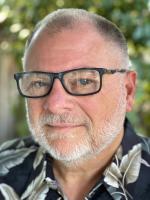We Are All Such Humans Here
We sat outside on the covered patio. I started the gas fire pit, which my father had had specially installed at some expense when the wood fire bans went into effect. He wasn’t going to let environmental concerns or pencil-necked city councilman tell him what he could or couldn’t do. We drank and ate, ate and drank, and then drank some more, and the rain fell in a dispirited, haphazard way.
Frannie and Constance became best friends in about fifteen seconds. I turned up the gas jets, and Jack poured with a heavy hand, so none of us had complaints.
Given the events earlier in the day, the talk turned to my mother and father. How they spent money like crazy, and yet, somehow, they were able to leave something behind, which was more than I could manage. They had taught me only one thing out of two, and I was the poorer for my miseducation.
“Parents,” Jack said, “they’re something, aren’t they? Batshit crazy. My mom, for example. When I was ten and she was drinking, my mom used to lock me in my room on the second floor. Took me about a minute to figure out how to get to the back porch roof and shinny down the eucalyptus. Getting back up was another story.”
“They fuck you up,” I said, “one way or another. That’s for sure. ‘What it must be like to be an angel / or a squirrel, we can imagine sooner.’” I was mashing it up, that was also for sure, but Jack didn’t seem to know the difference. Or care.
“Hah. True that.”
“The thing is, though,” I said, “you live your whole life thinking they’re the reason for your failures and flaws when it turns out you had more than enough cracks of your own, right from the start. Take me. When I was six, my dad took me with him to Zodys which was a kind of Costco back in the day. Before there was Costco. I sat down on the floor in the television department and started watching wrestling or Red Skelton or some such show, and I assumed that my father would come collect me when he was done. I sat there as people walked around me, and I completely lost myself in what I was watching. At a commercial break, I looked around, and my father was nowhere to be found. I got up and started wandering. I looked down aisles of hardware and aisles of groceries. I started to cry until an older woman in a Zodys smock took me to a room near the bathrooms. Some kind of break room, I guess. She gave me cookies and a cup of milk, and she took my name, and a little later I heard on the PA system, ‘Will the father of Fish Becker please report to the customer service counter. Apparently, you are lost.’
“My father came to the door, looking sheepish. ‘I got lost, Fish,’ he said. ‘But they found me, thanks to you.’ He, too, was wiping his eyes. ‘I was standing right behind you the whole time, but then you were gone.’”

David Borofka is the author of Hints of His Mortality (winner of the 1996 Iowa Short Fiction Award) and a novel, The Island (MacMurray & Beck). His latest collection of stories, A Longing for Impossible Things, was released in 2022, as part of the Johns Hopkins Poetry and Fiction Series and was chosen as the winner of the American Fiction Award for the Short Story by the American Book Fest; his novel, The End of Good Intentions, was published by Fomite Press in September 2023; and a new collection of stories, The Bliss of Your Attention, will be published in 2025, once again by JHUP. David recommends the Oregon Shakespeare Festival and Reedley College Literary Arts.


